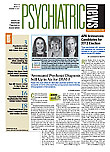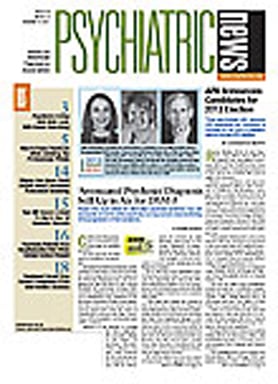There are two major reasons why young men start using illegal anabolic-androgenic steroids, which include the male hormone testosterone as well as its synthetic derivatives—body-image concerns and conduct disorder.
These findings were reported August 16 in Biological Psychiatry. The lead investigator was Harrison Pope Jr., M.D., a professor of psychiatry at Harvard Medical School who has been interested in anabolic steroids since he lifted weights in 1980.
Since the great majority of steroid users are male and lift weights, Pope and his colleagues recruited 233 experienced male weight lifters aged 18 to 40 for their study.
Subjects were asked whether they had ever used anabolic steroids. A total of 102 of the 233 subjects (44 percent) said that they had at some point or were currently using them. Only six of the steroid users reported having used steroids before age 17.
The researchers also used structured clinical interviews and computerized questionnaires to evaluate subjects' demographics, athletic activities, psychiatric histories, various childhood and adolescent attributes, and use of drugs other than steroids. They then assessed whether any of these factors were significantly associated with steroid use.
Two factors—body-image concerns and conduct disorder—showed strong associations with steroid use. Two other factors—a poor relationship with one's father and current or past opioid use—showed weaker associations with steroid use.
In an interview, Pope said that he was not particularly surprised by the first two findings. But what did surprise him, he said, "was the overlap between steroid use and opioid use. A number of the men whom we studied who developed long-term steroid use also had problems with opioid abuse or dependence." And this finding, he explained, not only jibes with animal studies demonstrating that testosterone use can be addictive, but suggests that testosterone use and opioid use "may tickle the same spot in the brain."
Kirk Bower, M.D., a professor of psychiatry at the University of Michigan with an interest in anabolic steroid use, had this to say about the study: "Of the two major risk factors identified in this study, one is very likely specific and the other nonspecific. Conduct disorder has been shown in both retrospective and prospective studies to be a risk factor for substance use disorders in general. Body-image concerns among young men in the form of feeling not big enough, however, appear to be specific to nonmedical anabolic-androgenic steroid use. The finding of negative relationships with one's father is intriguing and warrants further study."
Meanwhile, the results may help clinicians "identify boys and young men at highest risk for anabolic steroid use," Pope and his colleagues noted.
The results also have treatment implications for steroid users, Pope said. "There have not been any formal studies of men who have the body-image disorder called muscle dysmorphia, but certainly studies of other forms of body-image disorder have found cognitive-behavioral therapy and the SSRI antidepressants to be helpful. So by analogy, one might think that they might help men who develop steroid dependence." And the considerable overlap between long-term steroid use and opioid use suggests that opioid antagonists might help counter steroid dependence, he added. Indeed, an animal study supports this contention, he pointed out: "If you let hamsters self-inject testosterone, they will self-inject themselves with it to the point of death. But if you give them an opioid antagonist such as naltrexone prior to giving them the testosterone, they will not become dependent on it."
Pope and his colleagues are now conducting another anabolic steroid study to see whether they can find any adverse cardiac effects from steroid use in weight lifters aged 35 to 55. They are examining this particular population, Pope explained, because widespread steroid use only started around 1980. Thus many men who have previously used steroids or are currently using them are middle-aged, and any adverse effects from such long-term steroid use remain to be identified.
The study was funded in part by the National Institute on Drug Abuse.
An abstract of "Risk Factors for Illicit Anabolic-Androgenic Steroid Use in Male Weightlifters: A Cross-Sectional Cohort Study," is posted at < www.biologicalpsychiatryjournal.com/article/S0006-3223(11)00669-X/abstract >. 


